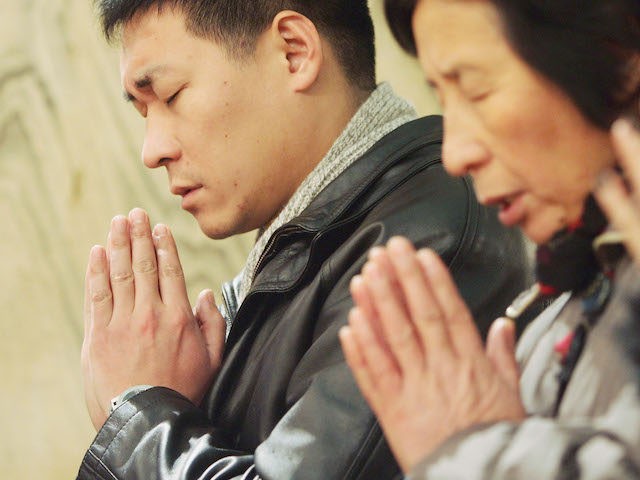China human rights magazine Bitter Winter reported on Wednesday that Chinese security forces conducted a massive crackdown against the Church of Almighty God (CAG) in the northern province of Shanxi over the past two weeks.
State security officials said over 1,000 arrests were made in the interest of “maintaining social order” during the Chinese Communist Party’s centennial celebration.
A document from the Office of State Security in Shanxi obtained by Bitter Winter actually referred to the operation as a “severe crackdown on the Church of Almighty God,” including enhanced surveillance of key church members.
CAG members in three different cities have been arrested, and more could be detained through the end of July. Another operation beginning in mid-April arrested at least 265 CAG members in central Henan province, tasking every provincial agency with identifying churchgoers and monitoring their movements to assist the police.
The Church of Almighty God, also known as Quannengshen or “Eastern Lightning,” began in 1991 and claims about 4 million members. Its core belief is that Jesus has been reincarnated on Earth as a Chinese woman known as “Lightning Deng” – evidently a specific middle-aged woman born in central China and rumored to be living in New York City, although members of the sect are generally evasive about discussing her whereabouts with outsiders.
The Chinese government views CAG as a criminal organization and a terrorist threat. Thousands of its members have been arrested over the past decade, especially after a group of CAG followers murdered a woman in public at a McDonald’s restaurant in China in 2014 – an attack recorded by numerous witnesses with their phones and uploaded to the Internet as a viral video.
Chinese efforts to break up CAG intensified in 2017 after it seemed the 2014 murder did little to hinder the cult’s recruiting efforts. CAG is on China’s xie jiao list, a blacklist of disfavored religious groups seen as subversive threats to the Chinese Communist Party’s (CCP) rule. Membership in a xie jiao organization is a criminal offense, even though China claims religious freedom is constitutionally guaranteed – a hurdle the communists get over by ruling that groups added to the xie jiao list are not “real” religions.
About three-quarters of the 22 groups currently on China’s blacklist are Christian sects; other notable entries include the Falun Gong meditation sect and the True Buddha School, a Buddhist organization headquartered in the United States.
According to Bitter Winter, heavy surveillance was imposed against CAG members in the run-up to the Communist Party’s 100th-anniversary celebration, and believers were targeted for arrest even though they committed no crime:
A released CAG member told Bitter Winter that during interrogation she found out that some police officers had disguised themselves as cleaning workers to surveil her for three months before her arrest. The police showed her surveillance screenshots of her and two other CAG members, and forced her to disclose the whereabouts of the two co-religionists.
The Bureau of Public Security of Yantai city in the eastern province of Shandong also carried out a major arrest operation targeting CAG members by use of surveillance and tracing. On April 20 alone, more than 30 CAG members were arrested.
According to a government insider from Shandong Province, since October 2020, over 200 CAG members have been surveilled in Shandong’s Longkou city, and among them at least 30 have been arrested. Many CAG members who are well known for their belief and have police records had no choice but to flee to evade arrest.
Chinese officials told Bitter Winter they were explicitly ordered to step up surveillance and arrests of dissident groups, especially CAG, during the Communist Party’s birthday celebration.


COMMENTS
Please let us know if you're having issues with commenting.